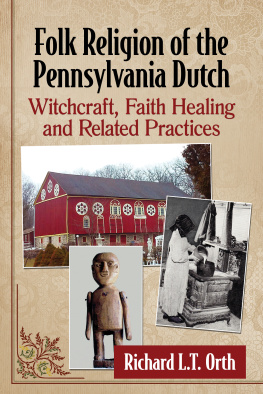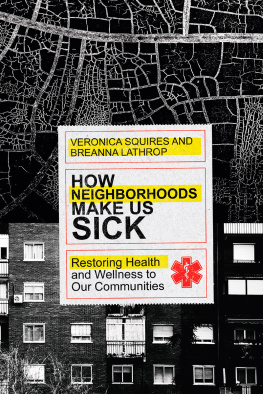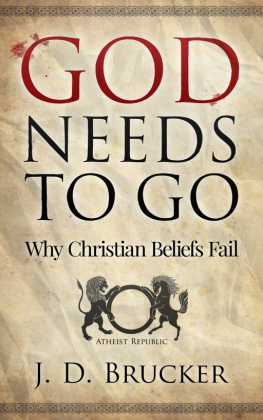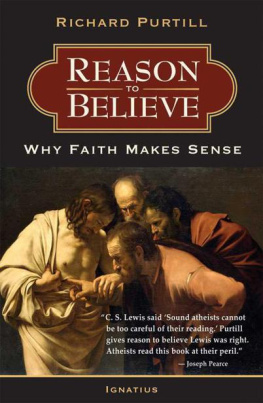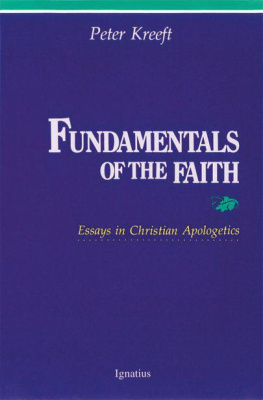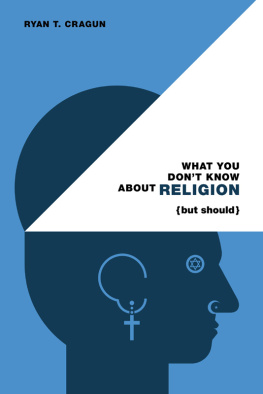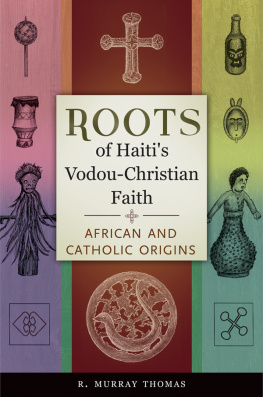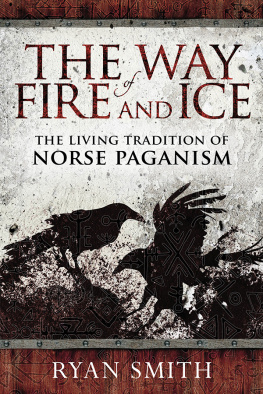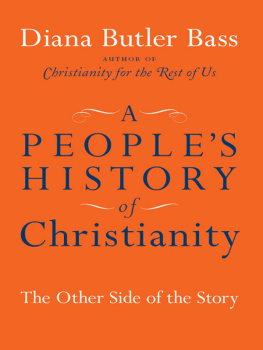Ryan Ahlgrim - Sick Religion or Healthy Faith? Beliefs and Practices for Healing Christian Communities
Here you can read online Ryan Ahlgrim - Sick Religion or Healthy Faith? Beliefs and Practices for Healing Christian Communities full text of the book (entire story) in english for free. Download pdf and epub, get meaning, cover and reviews about this ebook. City: Eugene, OR, year: 2016, publisher: Wipf and Stock, genre: Religion. Description of the work, (preface) as well as reviews are available. Best literature library LitArk.com created for fans of good reading and offers a wide selection of genres:
Romance novel
Science fiction
Adventure
Detective
Science
History
Home and family
Prose
Art
Politics
Computer
Non-fiction
Religion
Business
Children
Humor
Choose a favorite category and find really read worthwhile books. Enjoy immersion in the world of imagination, feel the emotions of the characters or learn something new for yourself, make an fascinating discovery.

- Book:Sick Religion or Healthy Faith? Beliefs and Practices for Healing Christian Communities
- Author:
- Publisher:Wipf and Stock
- Genre:
- Year:2016
- City:Eugene, OR
- Rating:5 / 5
- Favourites:Add to favourites
- Your mark:
- 100
- 1
- 2
- 3
- 4
- 5
Sick Religion or Healthy Faith? Beliefs and Practices for Healing Christian Communities: summary, description and annotation
We offer to read an annotation, description, summary or preface (depends on what the author of the book "Sick Religion or Healthy Faith? Beliefs and Practices for Healing Christian Communities" wrote himself). If you haven't found the necessary information about the book — write in the comments, we will try to find it.
Ryan Ahlgrim: author's other books
Who wrote Sick Religion or Healthy Faith? Beliefs and Practices for Healing Christian Communities? Find out the surname, the name of the author of the book and a list of all author's works by series.
Sick Religion or Healthy Faith? Beliefs and Practices for Healing Christian Communities — read online for free the complete book (whole text) full work
Below is the text of the book, divided by pages. System saving the place of the last page read, allows you to conveniently read the book "Sick Religion or Healthy Faith? Beliefs and Practices for Healing Christian Communities" online for free, without having to search again every time where you left off. Put a bookmark, and you can go to the page where you finished reading at any time.
Font size:
Interval:
Bookmark:
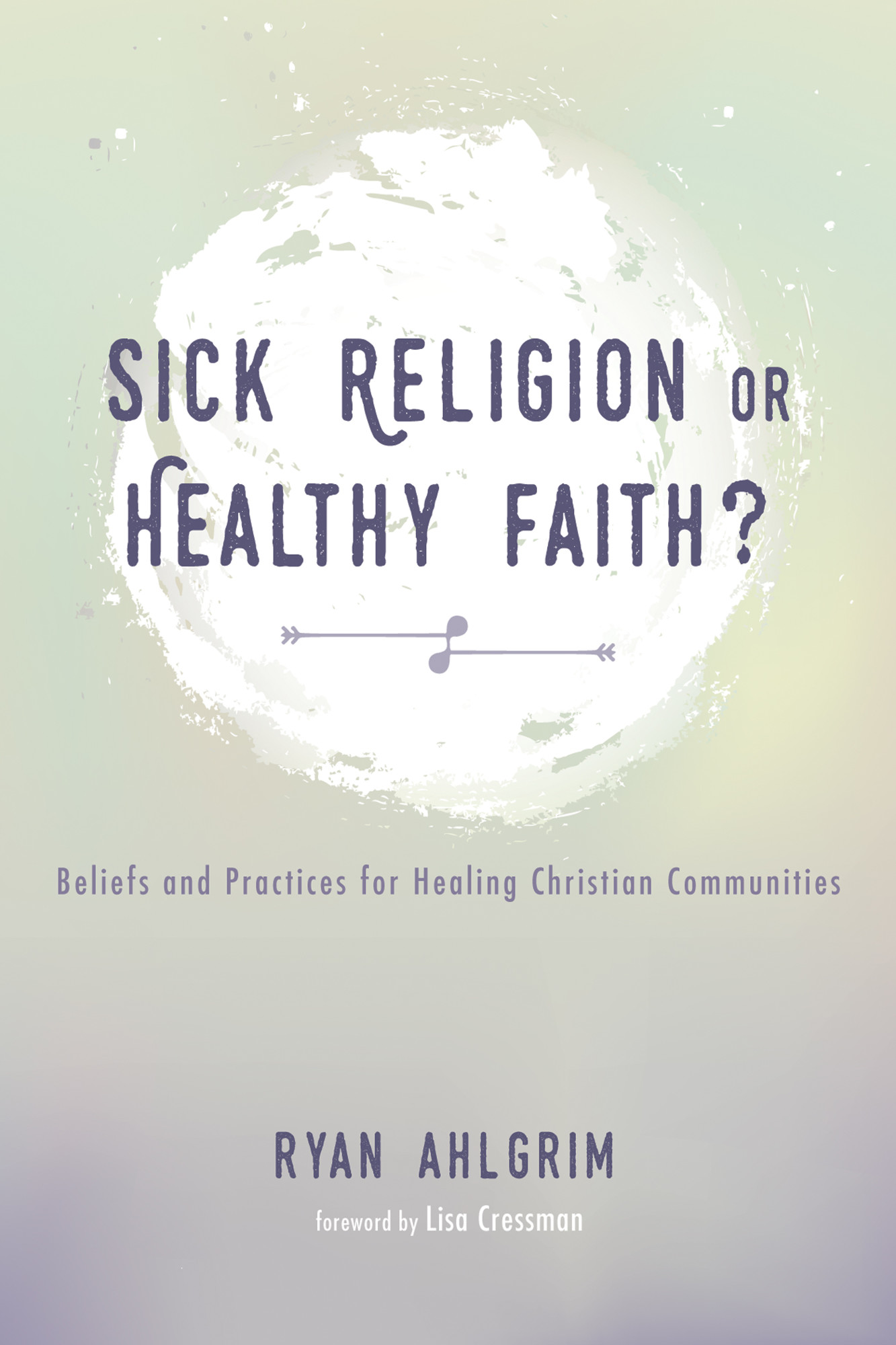
Sick Religion or Healthy Faith?
Beliefs and Practices for Healing Christian Communities
Ryan Ahlgrim
Foreword by Lisa Cressman

I hate reading books like this one. Its so easy to read and understand that my eyes slide right over the words. But then what Ive just read suddenly hits me, and I have to stop and go back and ponder it. I hate reading books that make me think in deep and new ways when I wasnt expecting it.
For instance, I had to ponder this idea: a healthy faith community. Some would say thats a contradiction in terms. But what if the idea of a healthy faith community isnt a contradiction in terms, but a contradiction in expectations?
Like most people, my expectations of faith communities have been sorely tried! For example, for three of my undergraduate years I lived in my denominations campus ministry house. About fifteen undergraduate and graduate students from around the world (plus some Central American refugees), representing many Christian persuasions, resided there at any given time. In exchange for work around the adjoining church, we lived rent free.
Many of my hopes and expectations were met there. Our relationships grew so deep that we became not only friends but a family of choice who supported one another in debacle or celebration. No question was off the table about the Bible, the church, God, or science in our pursuit of faithful, intellectual honesty. We incorporated our diverse religious perspectives in our prayers together. We cared for peopleespecially the homelesseven when it was inconvenient and a little scary, and we publicly and actively upheld our common core conviction of justice, especially for the oppressed. Some of the leaders served the community with such selfless integrity, joy, respect, and trustworthiness that I pretended that their faith was my own... until it was.
But it wasnt all healthy. Simultaneously, I also experienced that communitys ills, and they were just as considerable. Were I to do go into detail, Im sure that those who believe that a healthy faith community is a contradiction in terms would feel bolstered in their conviction! Almost certainly they would shake their heads in wonder that I remained a member of a faith community at all, let alone became an Episcopal priest.
But that is what this all comes down to. This is the heart of the question of whether a healthy faith community is a contradiction in terms or a contradiction of expectations. Simply put, it was not, nor is it, my expectation that a faith community always chooses what is best. It is my hope, to be sure, but it is not my expectation. No community, family, or individual chooses wisely and compassionately every time. My expectation is that people continue to be people even within a faith community. That means that sometimes we choose well, and sometimes we dont.
Then why get involved? Because faith communities are unabashedly in the business of figuring out how the Holy can make the most of us. We deliberately, passionately, and unapologetically admit that we cant figure it out by ourselves, that we need Gods help, and that even when we accept that help we still make mistakes, sometimes even egregious ones.
What makes a faith community so remarkable is that even when we make our mistakeseven when we make egregious mistakeswe dont throw up our hands in despair, or shake our heads in cynicism, and say the faith community experiment has failed. It is just the opposite. Instead, the mistakes give us the chance to practice forgiveness. We learn to ask for, receive, and offer forgiveness, which keeps us together as a faith community. And then we start over. Together.
This is very hard work, and few faith communities have the will and courage to pursue it. But Ryan Ahlgrim shows us a path. He eloquently and profoundly describes twelve practical, doable characteristics of healthy faith communities. He shows us that a healthy faith community is not a contradiction, but a real possibility that grows out of a healthy faith. Wherever two or three are gathered together, figuring it out, God is in the midst of them.
If God is in the details, then, thankfully, Pastor Ahlgrim has filled those in.
The Reverend Lisa Cressman, DMin
Founder and steward, Backstory Preaching
December ,
Missouri City, Texas
O ne could make a strong case that it is time for humanity to get rid of religion.
The sickness in religion is easy to see: suicide bombers, genocide, prejudice, exclusion, reactionary politics; ministers abusing children, repressive rules, inequality, decisions imposed by male hierarchies, secrecy, denial of scientific evidence, erroneous predictions of the end of the world, endless debates, obscure doctrines, immovable bureaucracies, financial scams, cheesy art, thin music, trite trinkets, attention-grabbing gimmicks. The list goes on.
Years ago John Lennons song Imagine invited us to dream. What would life be like if we ignored heaven and focused instead on the here and now? What if we eliminated the national boundaries that divide people and the wars they lead to? What if we were freed from greed and the accumulation of possessions? And what if, among all those other activities and identities that people fight over, we were to rid ourselves of religion? Perhaps, Lennon dreamed, we would finally have a world of peace.
His song is nave, of course. Even if we were to eliminate all institutions and ideologies we do not like, we would still have the original source of our problemspeople. Nevertheless, Lennons song plucks an enticing chord, and there is more than some truth in it. Surely religion has been one of the causes of human misery.
Given the irrational rituals and poisonous products promoted by some forms of religion, it is not surprising that the ranks of those who count themselves as religiously unaffiliated is growing quickly in the United States, especially among young adults. This group includes atheists and agnostics, but also many people who might be better described as spiritual but not religious. They believe in some sort of God, perhaps pray or meditate, and honor spiritual values and experiences. But they have lost interest in doctrines and religious institutions.
I sympathize.
Nevertheless, I think many of these people are missing something important about genuine spirituality: community.
We have a biologically built-in need for community. It begins at our birth and continues throughout our lives. We cannot thrive and mature without experiencing mutual love and a sense of belonging. Religion, when functioning properly, brings people together to experience this love and belonging. As a result, we mature emotionally.
In addition, community can accomplish something individuals often cannot: make the world a better place. For social well-being to be improved on a large scale and in a sustained way, we need organized communities of people that are passionately committed to a humane ideal. Community offers coordinated support and strength, as well as guidance and wisdom. Community gives us a plan and the necessary resources to carry it out.
Religion combines the strength of community with our yearning to commune with spiritual transcendence and find ultimate meaning. When religion is working properly, it provides a community of committed seekers who are pursuing mutual love, making a lasting difference, and connecting with the transcendent. As a result, religion has the potential for creating and sustaining humanitys most powerful and needed communities.
Font size:
Interval:
Bookmark:
Similar books «Sick Religion or Healthy Faith? Beliefs and Practices for Healing Christian Communities»
Look at similar books to Sick Religion or Healthy Faith? Beliefs and Practices for Healing Christian Communities. We have selected literature similar in name and meaning in the hope of providing readers with more options to find new, interesting, not yet read works.
Discussion, reviews of the book Sick Religion or Healthy Faith? Beliefs and Practices for Healing Christian Communities and just readers' own opinions. Leave your comments, write what you think about the work, its meaning or the main characters. Specify what exactly you liked and what you didn't like, and why you think so.

